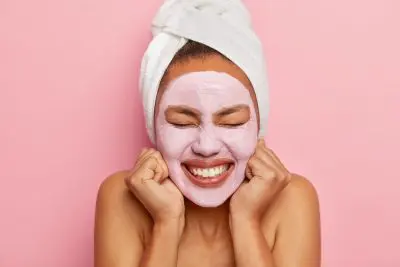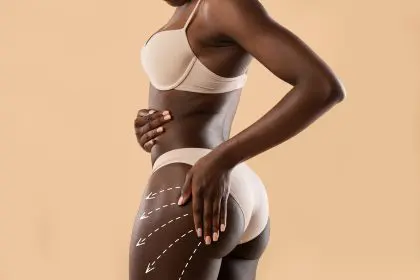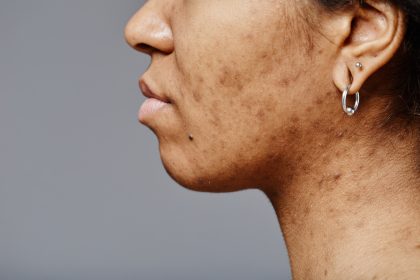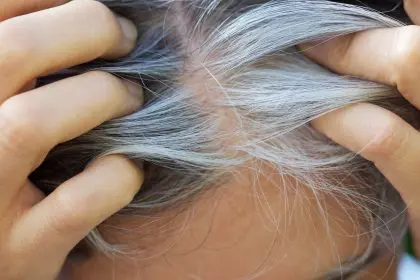Your daily shower routine might be the culprit behind persistent dry, flaky, or irritated skin. While cleansing is essential for hygiene and health, many people unknowingly damage their skin’s protective barrier through seemingly harmless habits that strip away natural oils and moisture.
The skin’s outermost layer, known as the stratum corneum, acts as a crucial barrier protecting against environmental damage while locking in hydration. When this delicate barrier becomes compromised through harsh shower practices, skin loses its ability to retain moisture effectively, leading to dryness, sensitivity, and premature aging.
The temperature trap destroying your skin barrier
The first and most damaging mistake involves water temperature. Hot water feels incredibly soothing, especially during colder months, but it acts like a harsh solvent on your skin’s natural protective oils. Extended exposure to high temperatures dissolves the lipid barrier that keeps skin supple and hydrated.
Water temperatures above 98 degrees Fahrenheit begin breaking down the skin’s natural oils, while temperatures exceeding 104 degrees can cause immediate damage to the protective barrier. This thermal damage occurs within minutes of exposure, making lengthy hot showers particularly destructive to skin health.
The ideal shower temperature should feel warm but not hot to the touch. Water that’s comfortable enough to keep your hand submerged without discomfort is typically the right temperature for preserving skin integrity while still providing effective cleansing.
Duration disasters that deplete moisture
The second major mistake involves shower duration. Many people extend their shower time far beyond what’s necessary for cleanliness, unknowingly subjecting their skin to prolonged moisture depletion. Even with lukewarm water, extended exposure causes the skin to lose its natural oils through a process called transepidermal water loss.
Optimal shower duration ranges between five to ten minutes for most people. This timeframe allows sufficient cleansing without overwhelming the skin’s natural defense mechanisms. Longer showers, particularly those exceeding fifteen minutes, can strip away essential oils faster than the skin can replenish them.
The skin’s natural oil production varies among individuals, but everyone has a threshold beyond which cleansing becomes counterproductive. Recognizing personal limits helps maintain the delicate balance between cleanliness and skin health.
Harsh cleansing products causing chemical damage
The third mistake involves using overly harsh cleansing products that contain sulfates, artificial fragrances, or antibacterial agents. These ingredients can disrupt the skin’s natural pH balance and strip away beneficial bacteria that contribute to skin health.
Sodium lauryl sulfate and sodium laureth sulfate, common ingredients in many body washes and shampoos, create luxurious lather but can be particularly damaging to sensitive skin. These detergents remove not only dirt and bacteria but also the skin’s natural protective oils.
Antibacterial soaps, while effective at killing germs, can also eliminate beneficial bacteria that help maintain skin health. This disruption to the skin’s natural microbiome can lead to increased sensitivity and reduced barrier function over time.
Aggressive scrubbing techniques that create micro-tears
The fourth destructive habit involves excessive scrubbing or using rough materials that create microscopic tears in the skin’s surface. Loofahs, rough washcloths, and abrasive scrubs can damage the delicate outer layer of skin, compromising its protective function.
Mechanical damage from aggressive scrubbing removes not only dead skin cells but also healthy cells that contribute to barrier function. This over-exfoliation can lead to increased sensitivity, redness, and accelerated moisture loss.
Gentle cleansing with hands or soft materials provides adequate cleaning without causing damage. The skin’s natural shedding process typically removes dead cells effectively without requiring aggressive mechanical assistance.
Post-shower timing mistakes that lock in dryness
The fifth critical error occurs immediately after showering when people delay moisturizing or skip it entirely. The minutes following a shower represent a crucial window for locking in hydration and supporting the skin’s recovery process.
Wet skin loses moisture rapidly through evaporation, and this process accelerates when the protective barrier has been compromised by hot water or harsh cleansers. Applying moisturizer to damp skin helps trap water molecules and provides additional lipids to support barrier repair.
The most effective moisturizing occurs within three minutes of showering, while the skin still retains some moisture from the water. This timing maximizes the moisturizer’s ability to enhance hydration and support the skin’s natural repair processes.
Frequency failures that prevent skin recovery
The sixth mistake involves showering too frequently for individual skin types and lifestyle needs. While daily showering has become the norm for many people, this frequency can be excessive for those with naturally dry skin or low activity levels.
Skin needs time to replenish its natural oils and repair any damage from cleansing. Frequent showering, particularly with hot water or harsh products, doesn’t allow adequate recovery time between sessions.
Individual factors such as skin type, age, climate, and activity level should determine optimal shower frequency. Some people may benefit from daily cleansing, while others might maintain better skin health with every other day or less frequent showering.
Environmental factors amplifying skin damage
The seventh consideration involves environmental conditions that can amplify shower-related skin damage. Low humidity, particularly common during winter months or in air-conditioned environments, increases moisture loss from the skin both during and after showering.
Hard water containing high levels of minerals can also contribute to skin dryness and irritation. These minerals can interfere with soap effectiveness and leave residues that further compromise the skin barrier.
Simple solutions for healthier shower habits
Transforming your shower routine doesn’t require drastic changes or expensive products. Small adjustments can significantly improve skin health and moisture retention while maintaining effective cleansing.
Start by reducing water temperature to warm rather than hot, and limit shower duration to under ten minutes. Choose gentle, fragrance-free cleansers that maintain the skin’s natural pH balance, and avoid products containing harsh sulfates or unnecessary antibacterial agents.
Replace rough scrubbing materials with soft washcloths or simply use your hands for gentle cleansing. Focus scrubbing efforts on areas that truly need it, such as hands, feet, and areas prone to odor, while treating more delicate areas with minimal friction.
Immediately after showering, gently pat skin dry rather than rubbing vigorously, leaving some moisture on the skin’s surface. Apply a quality moisturizer within three minutes of showering to lock in hydration and support barrier repair.
Consider your individual needs when determining shower frequency, and don’t hesitate to skip a day if your skin feels particularly dry or sensitive. Your skin’s health is more important than adhering to arbitrary cleansing schedules.
Long-term benefits of mindful shower practices
Adopting gentler shower habits yields both immediate and long-term benefits for skin health. Short-term improvements include reduced dryness, less irritation, and improved skin texture. Long-term benefits encompass better aging, reduced sensitivity, and enhanced skin barrier function.
Healthy shower habits become particularly important as skin ages and becomes more susceptible to damage. Protecting the skin barrier through mindful cleansing practices helps maintain youthful appearance and comfort throughout life.
By understanding how common shower mistakes damage skin and implementing simple protective strategies, anyone can transform their daily routine into a skin-supporting ritual rather than a source of damage. Your skin will thankyou with improved texture, reduced dryness, and enhanced overall health.


















